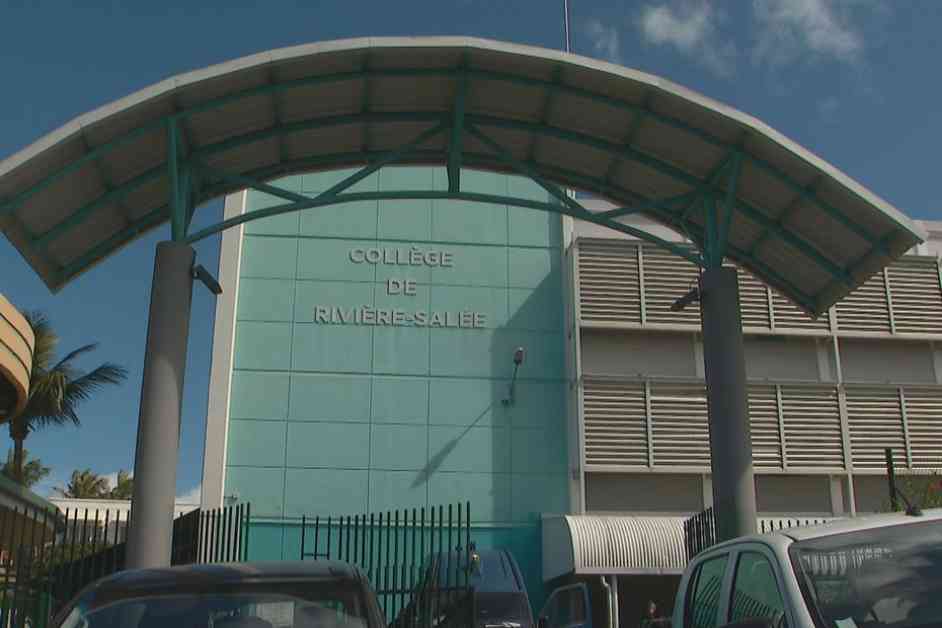A gathering took place on Sunday, August 11th at Rivière-Salée Park to discuss the closure of the neighborhood’s college, which was vandalized during the riots in New Caledonia, as announced by the South Province last week.
The decision has left many parents puzzled. The rehabilitation of the Rivière-Salée college, which was 70% destroyed during the riots, would cost 800 million francs according to the province. However, the province stated on August 6th that they are unable to carry out these works.
On Sunday, around sixty concerned parents, as well as staff members of the school, responded to the call from the Solidarité Rivière-Salée association, which organized an exchange session at the municipal park.
« I don’t have a car, there is no public transportation, how am I going to manage for my daughter, » a mother worries. « Moreover, all her friends are at the Rivière-Salée college, the teachers know her, but she is very shy, so it’s going to be tough for her. »
Currently, the sixth and fifth graders have returned to the school, while the fourth and third graders continue their classes at Marguerite-Arsapin school. However, starting in 2025, the students will be distributed among the colleges of Portes-de-Fer, Kaméré, or even Normandie. « For us, it’s a no, » a mother exclaims. « There is no transportation, how are we going to manage? Are we going to leave our children in front of the school before heading to work at 6 in the morning and they will have to wait until it opens? The South Province made its decision without consulting the main stakeholders. »
The Solidarité Rivière-Salée association has launched a petition. Its president, Francis Maluia, believes that despite the extensive damage, solutions can be found: « There are prefabricated buildings on the premises, classrooms that are currently being used as storage rooms. We should be able to operate the school, even in minimal mode. The closure will lead to social disruption, transportation difficulties. Reopening the college would bring some positive energy back to the neighborhood. » The association plans to have more meetings with parents and write to institutions to raise awareness.
This situation highlights the challenges faced by communities when important services like education are disrupted. The closure of the college not only affects the students directly but also has a ripple effect on the families and the neighborhood as a whole. It is crucial for authorities to consider the impact of such decisions on the people involved and work towards finding viable solutions that address the needs of the community.
The commitment shown by the Solidarité Rivière-Salée association and the parents in fighting against the closure of the college demonstrates the importance of community engagement and advocacy in situations like these. By coming together and voicing their concerns, they are not only advocating for the education of their children but also for the well-being of the neighborhood. This unity and determination can lead to positive outcomes and potentially influence decision-makers to reconsider their plans.
In conclusion, the closure of the Rivière-Salée college has sparked a strong reaction from the community, with parents and local organizations standing up against the decision. The fight to keep the college open is not just about the building itself but about preserving the educational opportunities and social fabric of the neighborhood. It is a reminder of the power of community solidarity and the importance of advocating for the needs of the most vulnerable members of society.




